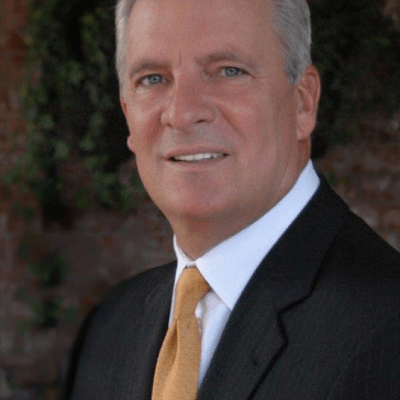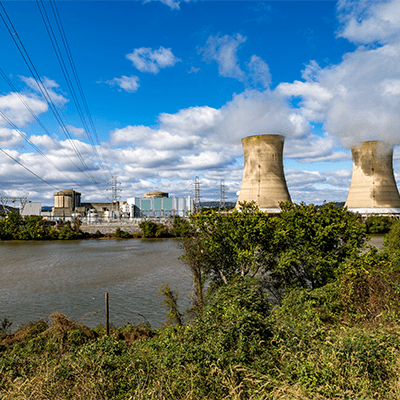As the Section 232 uranium decision deadline looms… Jeff Klenda, CEO of Ur-Energy, returns to the podcast to give his take on how it’ll all play out—and why.
As usual, Jeff tells it like he sees it… and doesn’t hold anything back. You really don’t want to miss this interview [13:48].
The Mike Alkin Show | 63
What to expect from the Section 232 decision
Announcer: Free and clear of the chatter from Wall Street, you’re listening to Talking Stocks Over a Beer, hosted by hedge fund veteran and newsletter writer, Mike Alkin, who helps ordinary investors level the playing field against the pros by bringing you market insights and interviews with corporate executives and institutional investors. Mike sifts through all the noise of mainstream financial media and Wall Street to help you focus on what really matters in the markets. Now, here is your host, Mike Alkin.
Mike Alkin: Welcome to the podcast. It is Monday, June 17, 2019. I didn’t record last week. It was a difficult week. The Saturday before last at around 11:00 at night, 11:30, we found out that our very, very close friends lost their 21 year old daughter in a car accident, and they are our family’s very, very close friends, and our children are close with their children. We happen to live a few houses away, and were with them right after they found out. That is as raw and mind numbing and horrifying to any parent for those, as you probably can imagine. It was very, very difficult to see them go through that and to be there with them. We were all devastated by it. Such a beautiful young girl, and brilliant and smart, and had a whole life ahead of her. To see that happen was really just surreal. We spent this past week just being there for the family. It was incredible. In the community I live in, as I’m sure communities around the world do, when you have tragedy like that, you band together and just show as much support and love that you can, and the outpouring of support was just amazing.
Mike Alkin: But last week, that happened on Saturday. On Monday, there was no chance I was going to be in any spirits to do a podcast. This past week was really, really just remarkable to see. We were with them every day and night, and it was a constant stream of people coming to their home and just trying to support them and go through it, and eventually start to talk about and share the stories and what a wonderful girl she was. That was this past weekend.
Mike Alkin: It really, as a parent, it was just … It’s just horrendous. You put yourself in their shoes and you just hug your kids. For my kids who are teenagers, they have so many questions. Gosh. I’m still waiting for that parenting playbook that has all the right answers. But hey, I’m very open with my kids, and so is my wife. Some things there are just no answers for. It’s awful and you just go to process it and be there to support them, and that’s what we did. Just a learning experience for everyone. It was really, really heartfelt. She was an exceptional athlete, she was a college athlete, as well. Her high school team, one of the teams she played on, went around our village and put purple ribbons on every tree. I don’t even know how many there were. But there are several hundred to more on big, giant trees. It’s a very wooded tree-lined community, the streets. Really warm and touching that they did that. They rallied together to watch them eulogize their daughter at the funeral. To get through it was just … Wow. I don’t even know what you can say. It was just incredible to see the strength they had to be able to do it, and that they had to live stream the funeral because there were just so many people there, and the wake of over 1000 people showing up. It went on for six hours.
Mike Alkin: It was a very, very odd week. That was the week, and now we’re back at it. We are going to touch on today … We’re going to talk a little uranium. Shocking, I know. But we’re getting down to the big focus of the uranium industry, really the last 18 months has been the Section 232 petition that was brought by Energy Fuels and Ur-Energy to US Uranium Minors. That was a petition filed with the Department of Commerce.
Mike Alkin: Essentially, without getting into all the details, on the grounds of national security, they were asking that the Department of Commerce recommend to the president that there be import quotas put on uranium, and that it require the United States Nuclear Power Utilities to buy 25% of their uranium from US Minors. And their rationale behind that … We’ll have the CEO of one of those companies on, and he’ll explain it more. But the rationale was the US generates one fifth of its power, of its electricity from nuclear power. Twenty percent of the electric grid is powered by nuclear power. It consumes 50 million pounds a year of uranium, some years 45, give or take, but roughly. That’s what it consumes. It produces domestically less than one million pounds, and that number has steadily declined for the last several decades, back at the height of the Cold War. It almost produced all it could consume. That’s on the commercial side.
Mike Alkin: On the military side, the Navy … They call it the Nuclear Navy, as so much of it is powered by nuclear vessels. As you look about the … The petitioners argue that the US Utilities are buying uranium from state-sponsored entities, specifically Kazakhstan and Russia and Uzbekistan, and now you throw China into the mix, who have different cost structures and could essentially, just at very, very low cost and subsidized by the state, dump uranium into the US. The argument is, that’s a security issue. Some people … We’re going to hear from Jeff, his views on this. Some people say, “I don’t understand how this is security. How is that national security?” Well, if your power grid, a fifth of it is powered by something, and for whatever reason a portion of those supplies couldn’t come in, well, could that affect manufacturing in times of need? Possibly. But we’re going to let Jeff talk that through. We’re going to talk to him about it.
Mike Alkin: But in January of ’18, they filed the petition. It got sent off to the Department of Commerce, and the Department of Commerce this July of ’18 decided that they were going to investigate, and they had nine months to do an investigation. If you think about how complicated the nuclear fuel cycle is, and you’ve heard me say on the podcast many times, it is, in my career of nearly a quarter a century, it’s by orders of magnitude the most complicated industry I’ve ever looked at. To be able to really wrap their heads around this in nine months was a Herculean task. By April 14th, they had to submit to the president their recommendations. Now, we don’t know what those recommendations are. That’s up to the White House to reveal what they were, and the White House does not have to take any of the recommendations. They could take all of them, none of them, some of them, they could come up with their own. That’s how Section 232 works. By legislation, by July 14th, the president has to at least declare what he’s thinking on it. You’re getting down to the wire, and there’s a lot of questions about it.
Mike Alkin: But what it did in the nuclear power industry is, for those in the uranium mining industry, the industry had been in a bear market since 2011 when the Fukushima nuclear accident happened in Japan. The better part of eight years, now. But you saw the commodity get declined by 95%. The number of companies went from 500 to less than 50, and it was devastation across the industry. Like any industry where there’s a cyclical industry that’s supply/demand driven, eventually supply and demand, there’s too much of something, there’s not enough of something. And then, when there’s not enough of something, they produce a lot of it, and then there’s too much of it. It ebbs and flows. At this point, though, in the uranium cycle, it was just devastation. The price of the commodity went down as low as $17 two years ago, and it sits at $25 now. It costs $45 to $50 for the average producer to pull it out of the ground. So they cut supply. That’s normal. That’s how markets work.
Mike Alkin: What’s interesting about uranium is, the utilities buy these on long term contacts. In 2012, 2013, 2014, they were covered. They had their needs covered, 2015 had their needs covered, ’16 had their needs covered, because at the last peak in 2007, 2008, 2009 when there was fear on the utilities part that there wasn’t enough uranium, they were buying a lot. They were buying 200, 225, 250 million pounds a year to secure supply. The industry this year will consume close to 200 million pounds, maybe a little bit more, drop less, right in that ballpark. But in years where they don’t fear, the utilities don’t fear that there’s a shortage, they buy 50 million pounds. That was ’07, ’08, ’09. You saw heavy contracting.
Mike Alkin: In the middle part of this decade, there was no need for utilities to go out and secure long term deals. Normally, they could range 7 to 10 years, but they’re longer term. And it takes two years to acquire that uranium. It’s a two year fuel cycle, 18 to 24 months. But two years, you’ll find. But as those contracts roll off, they go out and acquire uranium. But this Section 232 threw a wrench in everything, because the US utilities who are a third of the world nuclear power fleet, they didn’t really know what the Department of Commerce is going to mandate or recommend and what Trump’s going to decide. It’s been a pause. They’re entering a contract cycle that’s been on pause for a while, now.
Mike Alkin: Here we sit. We’re going to bring on my guest, Jeff Klenda, the CEO of Ur-Energy, one of the petitioners in the 232. Just for full disclosure, Sachem Cove Partners, Sachem Cove Uranium Fund, which I run, is a shareholder of Ur-Energy. Do not run with that, take that to mean anything other than it’s a position in the portfolio. Don’t own something because I do, because our fund does. It could be a small position, a big position. It is not something to make your own investing decisions. It is just part of our portfolio. But I want to disclose that just before we bring Jeff on. With that, we’re going to bring on Jeff Klenda to pick his brain a little bit.
Mike Alkin: Jeff Klenda, welcome to the podcast.
Jeff Klenda: Hey, nice to be back. Appreciate it. Hope you had a good Father’s Day.
Mike Alkin: I did. How was yours?
Jeff Klenda: Wonderful. Very quiet, and that’s the way I like it.
Mike Alkin: Same here. Man, we got a lot of ground to cover.
Jeff Klenda: Yes.
Mike Alkin: You know, it was funny, Jeff. I was thinking, four-ish years ago or whatever now, I didn’t really know too much about uranium, the uranium markets. But that’s been my journey here the last four years. Back in the summer of 2017, I spoke at a conference up in Vancouver, at a natural resource conference. The video wound up getting up on YouTube, and it became rather popular, because I was a new voice and I was giving a different perspective. One of the things I talked about at the end of that was the geopolitical risks that are involved in the uranium space and in Russia. At that time, I was piecing it together. It stood out to me about the dependency from US utilities on foreign imports. But it was more than just about uranium. It was about the nuclear fuel cycle. What I pointed out in that was how the Russians and Chinese are … They use nuclear power and vertically integrating from mining and enrichment and conversion and fabrication to use it as a geopolitical tool. And, hey. If I’m them, why not? We do what we do in the US.
Jeff Klenda: Absolutely.
Mike Alkin: That’s what they do. One of the things I said is, “How could the US avoid checkmate? Because,” I said, They’re playing a game of political chess with Russia, and it’s close to checkmate, and how could they avoid it?” I listed … It’s on YouTube. People could see it. I listed a handful of things. Forge ahead and eventually prices rise, or you have a Trump and para-nuclear friendly administration. You could reduce mine permitting times. You could provide tax incentives. The US, we could buy uranium instead of selling it. But I didn’t have answers.
Mike Alkin: What I didn’t know, though, at that time in July of ’17, was Section 232. I didn’t know what that was. And so, here we go, here. That’s July, and here it’s six months later, seven months later in January of ’18, Section 232 petition gets filed by you and Energy Fuels. While it’s funny, because I find often when I’m investing, it’s not necessarily … I don’t need the answers. But oftentimes, the questions lead me down a road, and the questions themselves provide answers. Well, the answer to me not knowing the answer at the time is how you avoid checkmate, just some ideas was, maybe it’s this Section 232, and you guys answered that in January of ’18.
Mike Alkin: Now, a lot of people will say, especially outside of the US, they’ll say, “I don’t even understand how it’s national security. What are they talking about?” So talk about the genesis, and talk about why a Section 232 petition, and how it does, in your mind impact national security in the United States?
Jeff Klenda: Well, I’ll be happy to, Mike. Let me go back a little bit, pre-date your July 2017, which coincidentally, by the way, was the month in which we met with Secretary Perry at the Department of Energy. Before I walked out of the building that day after meeting with Secretary Perry, I made the decision that we were going to bring a Section 232. I think it’s important for your listeners to understand that this isn’t just about the United States, and it isn’t just about uranium. Right now, we are facing a situation where the Chinese are threatening to withhold rare earths, which we are 80 to 90% dependent on the Chinese for all things rare earths. This goes into everything from our cell phones to weaponry to television sets. You name it. But in addition to that, this also affects the broad list of 35 critical minerals, 16 of which we have had such shortages in that we have delayed the delivery of weapon systems and other critical, technical machinery because we have not had access to those critical minerals.
Jeff Klenda: This is something that is very, very important. Uranium is just what happens to be our business and where we filed the Section 232, but you really … If you want to understand the genesis of this and how we got to where we are right now, you have to go back to the end of the Cold War, the fall of the Berlin Wall, Ronald Reagan saying, “Mr. Gorbachev, tear down this wall.” At the time, this was considered to be a victory for the United States, and that was good. The problem was, and what we realized soon after that was that unfortunately, scientists began defecting, nuclear bombs started disappearing. We had a highly enriched uranium that was now starting to fall into the wrong hands. In 1992, we put in place what is called The Russian Suspension Agreement. The Russian Suspension Agreement was well-intentioned, and it was necessary. It was the right thing to do. We had to make sure that highly enriched material was not falling into the wrong hands. I think there was a real intention and a sincere desire on the part of the United States government to help Russia go from being a government-controlled economy to a true market economy. These things were necessary, and The Russian Suspension Agreement went into place.
Jeff Klenda: What that did was it allowed the Russians to provide up to 20% of the consumption needs of the United States. Keep in mind, you can even go back another decade and say, back in 1980, 10 years before the fall of the Berlin Wall, we were the largest producer of uranium on the planet, producing nearly 44 million pounds per year. We were entirely self-sufficient. But by 1988, 1989, we were only supplying about 37 and a half percent of our own fuel needs in the United States. That led to the very first Section 232 investigation that took place at that time. It was determined that nothing needed to be done because basically, the vast majority of the other 62 and a half percent that we were reliant on foreign countries for was coming from Canada and Australia. It was deemed, at the time, that it was not necessary to take action under that Section 232.
Jeff Klenda: Well, things began to develop. What happened, and this is a big event that most people are not aware of. But originally, under the Suspension Agreement, that not only included Russia, but it included satellite countries like Kazakhstan, like Uzbekistan, that are now some of the most prominent uranium producers in the world. But by 1999, the Kazakhs and the Uzbeks were let out of The Russian Suspension Agreement. This is a big event. Twenty years ago, in 1999, the Kazakhs and the Uzbeks were let out The Suspension Agreement, and it wasn’t considered a big deal. No one was terribly concerned about it because they weren’t producing that much uranium. The Uzbeks were almost a non-issue, a non-producer. Kazakhstan was producing only less than two million pounds per year.
Jeff Klenda: But then, fast forward to 2001 and what happens? Vladimir Putin takes power in Russia. Now, Vladimir Putin, being the master chess player that he is, he understands long term issues. He thinks very much like the Chinese. We, in the United States, we think quarter to quarter. The Russians and the Chinese, they think in decades. What he began, at that point, was the build out, state sponsored, I might add. This is something that’s critical to understand, is that the Russian and the Kazakh governments were sponsoring the build out of the Russian and the Kazakh uranium industries. You have these state-sponsored entities. The real sad part is that by 2004, we find ourselves in a position where the Kazakhs have ramped up their uranium production. Now, that this point, they’ve gone from 2 million pounds a year up to probably 12 to 14 million pounds a year, in just a 4 year period of time.
Mike Alkin: And by that, now we’re saying … Just for listeners, Jeff, in Kazakhstan, they’ll produce over 20 million pounds. But the state-owned entity, Kazatomprom, produces that, and then the others are through joint ventures. But I just wanted to clarify that for listeners.
Jeff Klenda: That is correct.
Mike Alkin: Yep.
Jeff Klenda: But I think the thing that needs to be emphasized here is that what began was, was actually the rise of Uranium One. This is something, by the way, that we avoided in our petition, because we did not want it to be politicized. But the simple fact of the matter is that, by 2004, Vladimir Putin was making moves to consolidate his entire nuclear industry under one name, and that is ROSATOM, is the Russian entity. Their first move was to begin the consolidation and the acquisition of a company called Uranium One. People need to understand that, yes, they think about Uranium One and they think about the Clintons and the Clinton Foundation and whether or not bribes were taken in order for them to acquire 20% of US resources. But there’s a much bigger story there that was left out of the petition, because we did not want to politicize it, and that is that Uranium One became the entity where the Russians started consolidating all of the Kazakh production under the flag of Uranium One, a publicly traded company in Canada. The Clintons were large shareholders in that company.
Jeff Klenda: What we then found is that, basically, between 2004 and 2009, actually from the time Vladimir Putin took office in 2001 through to 2009, we saw Kazakh production go from roughly 2 million pounds a year, to 36 million pounds a year. Of course, now we know that over the years since then, that production has ramped up to over 60 million pounds a year. They are the largest producer of uranium on the planet.
Mike Alkin: Yep.
Jeff Klenda: Back in 2009, they made the announcement that they wanted to take control of Uranium One. Uranium One-
Mike Alkin: Yeah. By the way, not to interrupt, I earlier said 20 million pounds. I was talking tons. Anyway. Go ahead.
Jeff Klenda: About 21 metric tons.
Mike Alkin: Exactly.
Jeff Klenda: A little over 60 million pounds.
Mike Alkin: Yeah. Exactly.
Jeff Klenda: I think that what’s important to understand here is that, this was something that was a multi-step process that started in 2005 with Uranium One being formed as a Canadian company. Then, you move forward into 2007 where basically, they merge with a company called Eurasian Minerals, and this was something that the Clintons were large shareholders of, along with a number of high-profile Canadian investors. By 2009, now you’ve consolidated a number of these Kazakh production entities all under the U-One roof, and the Russians for the first time make an appearance. They control about 16 and a half percent of that entity.
Jeff Klenda: You move forward to 2009, now they are acquiring US assets. They acquired the Christensen Ranch Irigaray Plant. That is now known as Willow Creek. But that gave them roughly that 20% of known United States resources. And then, you get to the real dirty part, and that’s in 2010 when the Russians wanted to become controlling owners of Uranium One. They wanted to control over 51%. Well, that had to be approved by the Council of Foreign Investment in the United States. Of course, that was overseen by the Clinton State Department and the Obama Administration. It was approved. What we have here, now, is in 2010, the Russians now have controlling interest in the largest uranium production company in the world, Uranium One. By 2013 they make it official. They go private. They now have controlling interest in all of U-One, and they gave $1.3 billion in consideration for this, along with a couple of other Kazakh properties that they rolled into it, that they now have 100% interest in this.
Jeff Klenda: Why is this significant? The reason it’s significant is because remember, now we go back to The Russian Suspension Agreement. 1992, the Russians were basically given 20% of the United States market, under International Treaty. They have the ability to provide up to 20% of our consumption in any given year. I think it’s important to note that the United States producers themselves have no such guarantee. We’re not guaranteed any portion of the United States consumption for fuel needs in the nuclear electric degeneration industry. But the Russians have 20%. Well, what they have now been doing, now once they took 100% of U-One, they are now controlling, by virtue of that interest, more than 40% of the production in Kazakhstan, which also represents 40% of uranium production globally by this time. What has happened is, the reason we are where we are, and the reason that we have dropped down to pricing staying flat lined in the mid-twenties is because when you think about it, you go back to 2014, we were $44 a pound. But two years later, virtually 100% due to Kazakh dumping of uranium product in the United States … Again, this is a state-owned enterprise, and they’re benefiting from a tenge that has devalued by 90%-
Mike Alkin: Well, what Jeff means by-
Jeff Klenda: In a low value currency and some in dollars.
Mike Alkin: Yeah. And listeners, what Jeff is talking about there is, Kazakhstan devalued the Tenge, which is their currency, and said it devalued by 80%. The Kazakhs, their costs are in Tenge, but the sell uranium in dollars.
Jeff Klenda: Absolutely.
Mike Alkin: There is an arbitrage there. The Kazakh state generates probably a quarter of its revenue from oil and gas. In 2014, oil collapsed and you had the post Fukushima effect uranium. A way to stimulate what was going on for them, and to benefit … Because Kazatomprom, the state-owned uranium entity, because now they’re able to sustain these really low prices, on top of producing lower because they don’t do certain things in their production, which Jeff could explain. But it really was a big currency play for a while.
Jeff Klenda: But the thing that I think is important to understand here, and this is where I was going with this. Here’s the real point that needs to be taken away by the listener, and that is, no only have the Russians been guaranteed 20% of our consumption market here in the United States, which is a huge chunk because let’s face it. Nuclear power provides 20% of the electricity in the United States. Every fifth time you turn on a light in the United States, you can thank nuclear. But because of their ownership in the Kazakh resources, they gave been allowed to circumvent the Russian Suspension Agreement and dump all that Kazakh product in the United States. That is what took us from $44 a pound in 2014 to December of ’16, we found ourselves at $18.75. It was because the Kazakhs were dumping that material.
Jeff Klenda: Essentially, Vladimir Putin, in an 18 year period of time, has put himself in a position where he now controls the fuel cycle. He is controlling more than 60% of global, primary production of uranium. He now controls roughly 40% of global conversion, and he controls 50% of global enrichment. He has taken control of this critical, critical industry and he has used the acquisition of U-One, which you got to take a look back and say, “Okay. The Clinton State Department and the Obama Administration knew when they were approving that purchase, that go private of the Russian ownership of Uranium One, that that would be used to undermine our own industries.” It’s not just the United States industries. We’ve seen Cameco’s McArthur River Facility shut down, the largest uranium production facility in the world. Basically, they’re putting the rest of the world out of business with their low-cost product that is being state sponsored, and in low cost currency. In so doing, they are now taking control of these critical industries. In our case, uranium.
Jeff Klenda: We felt compelled in January 2018, 18 months ago, we brought a Section 232 to address this problem. We effectively stated all this. By the way, one of the things that I would emphasize here is that none of what I’m saying is conjecture. It is all very well footnoted and annotated in various documents. But these timelines and these acquisitions are very well laid out in our petition, our Section 232 petition. It’s all very factual. We’re not engaging in speculation, here. This is precisely what has taken place.
Mike Alkin: Jeff, how do you answer the folks who say, “Putin doesn’t control Kazakh production. That what goes on there …” People speculate about that.
Jeff Klenda: That’s a good question, because the Department of Commerce asked me that very question in a meeting with them in April. They said, “Your position …” This is a face-to-face meeting in the Department of Commerce. Effectively, what is being asked of us, is that, “You’re alleging that the Russians control Kazakh production.” Our response was, “No, Sir. We’re not alleging that they just control Kazakh production. They own Kazakh production.” The investigators are quite well aware of it. The fact is, this isn’t just a situation where Vladimir Putin is strong arming Nazarbayev, his buddy over there in Kazakhstan in saying, “You’re going to ramp up production and you’re going to flood the world with it. And, by doing so, we’re going to take control of the fuel cycle.” I’m saying that the reason the Kazakhs will not even ramp up or close down production or scale back production is because their Russian partners will not let them. Their ownership interest in those production facilities allow them to make sure that they keep the spigots open. They continue to flood the market and engage in classic dumping in the United States, which means that you’re selling at under the current spot price. They are discounting the material, and they’re doing it for the purpose of gaining market shares.
Jeff Klenda: To the listener, I would say, no. They don’t just control Kazakh production. They own it.
Mike Alkin: What Jeff is talking about-
Jeff Klenda: And that’s a very different situation.
Mike Alkin: Yeah. Kazatomprom, the state-owned entity in Kazakhstan has joint ventures with various entities. They have one with Cameco. They have one with Orano, the French and the Chinese. And they also have them with Uranium One. They have various JVs there at various minds out there. Some Uranium One, which is a subsidiary of ROSATOM, the state-owned Russian entity. Some of them are consolidated into the financial statements of Uranium One, and others are accounted for as an equity investment. They have various degrees of ownership out there, but they do have several mines.
Jeff Klenda: That’s correct.
Mike Alkin: Uranium One generates almost all of its revenue from Kazakhstan.
Jeff Klenda: Yes, it does.
Mike Alkin: Jeff, it’s interesting. One of the things I thought, as I was putting the mosaic together over the years of the Uranium One and the Clintons and all of that stuff, and the story was that 20% control of the US. But those were assets. They’re okay, Christensen, right?
Jeff Klenda: Yeah.
Mike Alkin: What you’re saying is the bigger story is doing this to control, not the US uranium, but it was to control Kazakh, is what you allege?
Jeff Klenda: 100% correct. I think that’s something that is, without a doubt, a misconception. Politically, let’s face it. This is one of those things that’s just not going to go away. The reason it’s not going to go away is, particularly as it becomes more of an issue … I have said this repeatedly over the last two years. If, for any reason, there was a disruption in the transfer of that material that we have now become so reliant upon, so dependent upon from Russia, Kazakhstan, and Uzbekistan, our United States utilities would be in crisis literally overnight. Now, as we’re seeing the Chinese threaten to withhold rare earths, we are seeing disruptions in the delivery of other critical minerals, which uranium is now on the list of 35 critical minerals. This is something that our utility friends protested because they didn’t want to see it have that critical status. But it is a critical mineral. It is something that we are very reliant on for our grid.
Jeff Klenda: But you’re absolutely right, with respect to Uranium One. Did they gain control of a certain number, in fact, a large number of US uranium resources? Yes, they did. But that’s not the real reason. The reason they wanted to acquire, that they accumulated the interest in U-One was for the control over the Kazakh production, which they have used in dumping around the world and gain control of the fuel cycle. Here’s a fact. Right now, you take a look at it and Westinghouse is the repository of our nuclear technology and knowledge that we have in uranium. How many reactors has Westinghouse built?
Mike Alkin: I was going to say, good luck with that.
Jeff Klenda: But the Russians, on the other hand, they are building, at the present time, 36 reactors in 12 countries. You take a look at these emergent market countries that want to have nuclear power, and they’re entering into these “nuclear cooperation agreements” with the Russians. As a matter of fact, it was just announced this last week that the Russians had entered into their 16th nuclear cooperation agreement with African nations. What they’re doing is, effectively they’re entering into these long term relationships because they’re going to build out these reactors. In many cases, they’re financing the first couple of reactors. They’re going to supply the fuel for these reactors, and oversee the operations and all the way through to the commissioning. But that’s an 80 to 100 year process. What’s happening is that the Russians are getting in on the ground floor of energy production and generation with these emerging market countries, and it gives them control over these countries, geopolitically, for an 80 to 100 year period of time. Effectively, this control of the fuel cycle is a much bigger issue.
Jeff Klenda: We, as the United States of America, are losing our seat at the nuclear table.
Mike Alkin: Well, Jeff explain to people why that’s important, because I think people … You can hear that. If you’re a lay person and you’re learning about this industry, you might say, “Well, okay. Nuclear power? Who cares. Renewables will come in,” whatever you think. But it goes well beyond energy, because nuclear power-
Jeff Klenda: That is correct.
Mike Alkin: It deals with non-proliferation. It deals with having a seat at that table that dictates who can do what in the nuclear world with weapons and everything else. Talk about the impact of losing a seat at the table.
Jeff Klenda: Let me answer that by giving you an example. Right now, I think it’s fairly well understood that Saudi Arabia wants to build somewhere between 16 and 18 nuclear power plants, ostensibly, primarily, for water desalinization so they don’t have use oil for the purpose of doing that. They can sell their oil on the worldwide markets if they can desalinate using nuclear power. Okay. On the surface, that sounds fine. But one of the things that we have been doing is, our State Department has been in negotiations with Saudi Arabia saying, “Look. We want to oversee what type of design you’re going to be building out. We want to, especially, just like with Iran, we want to oversee enrichment to make sure that you’re not highly enriching to a point where it can be weaponized.”
Jeff Klenda: The Saudis are effectively saying to our State Department, “Look. We don’t care if we come to an agreement with you on enrichment or not, because we’ve got Russian Ambassador Lavrov sitting right down the hall, here, and they will oversee construction. They will oversee operation. They will provide the fuel all the way through to decommissioning 80 to 100 years from now. Oh, by the way, they’ll pay for the first four of them.” Well, who would you do business with? And, what the Saudis are saying to us is, “Why should we do business with you when you guys are letting the fuel cycle die in your own country? You don’t produce uranium anymore.” We’re only going to produce about 250000 pounds this year, and we consume over 50 million pounds. Our only conversion facility was shut down in the fourth quarter of 2017, and the only enrichment facility that we have here in the United States is not even US owned, and we only pull enrich for the Russians. We have let the fuel cycle effectively die, or we’re on the verge of letting it die. Now, the Russians are taking control of that. When you’re Saudi Arabia and you’re making a decision as to who you’re doing business with, you’re going to do business with the Russians because the Americans are letting their own fuel cycle die. That’s a tragedy.
Jeff Klenda: Like you said, you made the most salient point. That is, this is about nuclear proliferation. We have been the primary gatekeepers. We have been the guardians against nuclear proliferation since the beginning of the nuclear age back in the 1940s. Now, what are we going to do? Are we going to honestly seed control of that nuclear proliferation or prevention of nuclear proliferation to the Russians and the Chinese? Keep in mind, the guys that we have so many problems with right now, like North Korea, like Iran, where do you think they got the technology? They didn’t get it from us. They’re getting it from the Russians. This is an issue that … I don’t know that there’s a more important issue out there right now. And yet, we’re trying to save the fuel cycle. The real tragedy is, we’re having to fight our own domestic utilities in our attempts to save the fuel cycle in the United States and make sure that that United States is self-reliant and not dependent on the Russians, the Chinese and the Kazakhs and whomever else. That’s been the thing that’s been the most difficult about this whole 232 battle, is fighting our own utilities in this process.
Mike Alkin: It’s an interesting point you bring up about the utilities, and one that I said earlier. It’s often I don’t necessarily have the answers, but the questions lead you down the road. One of the things … The utilities, as you know, very smart people. The fuel buyers are very bright, intelligent.
Jeff Klenda: Yes, they are.
Mike Alkin: Their biggest concern is the security of supply, because you can’t replace uranium. You need it to run nuclear power. At least today you do and for the foreseeable future.
Jeff Klenda: Yes.
Mike Alkin: There’s this … You could see what the Russians … And kudos to the Russians … I don’t mean “kudos” to them. But they’re creating their own hand. They’re playing chess.
Jeff Klenda: Brilliant strategy.
Mike Alkin: Brilliant strategy. Right. That’s what they do. The control they have over natural gas into Europe, that’s just part of … Energy is everything. Energy is the way they control it, and that’s what they do, and they have a lot of it. Interestingly, right, they have a lot of natural gas and oil, but they don’t have a lot of uranium. But they’re going out and they’re creating their own way in the fuel cycle strategically. But the utilities have to see that. I’ve always wondered, the questions I’ve had is, you don’t even have to look back a couple years ago, where it’s reported that Russia inserted malware that could sabotage American power plants, oil and gas pipelines, water supplies-
Jeff Klenda: And tapped into our grid twice in the past two years.
Mike Alkin: And just yesterday or over the weekend, it was being reported that the US is stepping up its digital incursions into Russia’s electric power grid by doing the same. Point being is, there’s a game of cat and mouse going on, and we have two very different interests. Why do you think the utilities have allowed the dependency to occur? Because it’s something … You could say, “Yes, Mike. Uranium’s fungible. It doesn’t matter as long as it meets certain standards.” But why let the supply on the US just dwindle to nothing, basically?
Jeff Klenda: And why put yourself in such a dangerous position?
Mike Alkin: Yeah. What am I missing in all of that?
Jeff Klenda: Well, and let me-
Mike Alkin: Because, by the way, we said they’re smart and we know they talk about costs. I’m sorry to interrupt you, but they talk about cost. But it could go back through a year now of earnings called transcript from the utilities. You might hear one mention of Section 232 by any of them. If you read the quarterly filings, one, maybe two of them, even mention the risk of Section 232 uranium. Yet, they’re fighting it so hard on the costs. Why? And why the comfort with the suppliers that they have when you see what’s going on?
Jeff Klenda: One thing, you’re point is correct, is that they don’t mention it in their filings because it’s really not material to them. The fact is that the cost of uranium as part of their overall cost structure is minimal it’s in the five to six percent range. This is something that their company isn’t going to succeed or fail based on the cost of uranium. One of the things I would emphasize, here, and I think this needs to be understood by your listeners is that, I know all the fuel buyers. They’re good people. If you just sit down and you met with them at the quarterly conferences and so on, they’re just like your neighbor next door. They’re good folks. They’re just trying to do their jobs. As you point out, they’re very smart people.
Jeff Klenda: But unfortunately, because of very bad energy policy in the United States, and predominately under Bush II, but more under the Obama administration, you saw the renewables, wind and solar, receive just massive tax credits. In some areas of the country, that renders the nuclear power producers uneconomic because they’re competing against wind and solar that is being so heavily subsidized with massive tax credits here in the United States, that it makes it difficult for the utilities to compete. I understand why they have to keep their costs as low as possible.
Jeff Klenda: But they have taken it to an extreme now where they are actively out there, not just fighting us in our attempts to keep the fuel cycle alive, but they’re also advocating very strongly for the Russians and the Chinese in a number of different areas. You get to a point where you say, “Come on, guys. This is not a huge cost for you. This shouldn’t be a big deal.” We have something far larger, a much bigger fight that’s looming, and that is that The Russian Suspension Agreement is coming up for a scheduled Sunset Review in 2020. The determination is going to need to be made by the Department of Commerce as to whether or not we continue to allow them to have 20% of our market. If The Russian Suspension Agreement actually goes away, that’s a bad thing because then they have no restrictions on how much they can dump into the United States.
Jeff Klenda: What I will say to you is, while the utilities are really good people individually, as an industry, they have put themselves in a position where they have become so reliant on this low cost fuel that they know originates, in many cases with our adversaries, our enemies, that don’t share our values and our democratic values in the United States. They have become strong advocates for, unfortunately, our enemies. This is something that we know to be a fact. They will say, “Well, if we have to pay more for fuel, it’s going to put us out of business.” Well, my answer to that would be, “If the additional costs that you would pay the US producers to produce uranium in the United States to keep the fuel cycle alive and make sure that we have a certain minimal level of self-reliance in nuclear fuel, if that additional cost is the difference between you staying in business or not,” then I would suggest that they are so uncompetitive that they need to go out of business. But it’s a sad state of affairs. I don’t think anybody envisioned this.
Jeff Klenda: That’s something else that I would emphasize. Back in 2009, 2010, when that terrible decision was being made to allow the Russians to take Uranium One as a Russian private entity, no one really at the time saw the Kazakh production coming to the levels that it is now at 40% of primary production globally, more than 60 million pounds a year. We didn’t see it coming. But it was very much something that was on the drawing board and was being planned and was being executed by our friend, Vladimir Putin. The utilities have found themselves in a position where, whether they intended it or not, they have actually become pawns used by Vladimir Putin in that much larger, geopolitical chess game. Unfortunately, I don’t think they know how to get out of it as this point. I don’t think they know how to extricate themselves from what they even recognize as a very bad situation.
Jeff Klenda: I sat through a presentation … This was the World Nuclear Fuel Market Conference. You were in attendance at that conference, Mike.
Mike Alkin: Mm-hmm (affirmative).
Jeff Klenda: Where the representative of the Russians, Fletcher Newton, who now is the president of Uranium One, by the way. That just happened three weeks ago, stood up in front of that audience and said by 2025, that they wanted to be, his words, “A one stop shop for all things enriched.” In other words, he’s saying, “You don’t need to tie up money in uranium. You don’t need to tie up money in conversion. You just need to rely on your good friends, the Russians and the Kazakhs, and all we care about is making money for you, our partners.” The utilities, sadly, have bought into this. In their minds, they honestly believe it would be absolutely okay for us to become 100% reliant on the Russians for nuclear fuel that is responsible for 20% of our electricity grid. That is a sad state of affairs.
Mike Alkin: Yeah. It’s interesting through public records you can see who does lobbying and whatnot. It’s interesting that the utilities lobbying strategy … I shouldn’t speak of all of them. But some of them will lobby against Russian cyber-attacks to support legislation for that. Yet they’ll, on the other hand, lobby to change 232 and getting into the hands of the president. I got to think the timing of such lobbying has to do with this 232 filing. On one hand, they seem to be somewhat aware of the Russians’ propensity to try and mess with us. But on the other hand, they want to take the power out of Trump’s hand and they’ll support legislation and lobby for that. It’s interesting how they go about that.
Jeff Klenda: Well, I can confirm that. Since we filed Section 232, we have retained the services of … We work with a lobbyist in Washington D.C. And, of course, all the lobbying efforts have to be disclosed. They have to become public record.
Mike Alkin: Yep.
Jeff Klenda: What you’re speaking of is the fact that all of these utilities, if you take a look at the eight largest utilities in the United States, the amount of money that they spent on lobbying last year is in the billions, and consistently, whether it be the renewal of The Russian Suspension Agreement, opposition to Section 232, and essentially allowing the Russians to continue and exert even greater influence over the United States, not just in uranium, but in rare earths and in other critical minerals, is something that they are, indeed, actively lobbying for. That is a matter of public record. This is not our opinion. This is not conjecture on our part. This is all public record that’s available for anybody to take a look at.
Jeff Klenda: Sadly, and I hate to even express it this way, but the Russian collusion story isn’t the Trump administration colluding with the Russians to rig an election. The real Russian collusion story is taking place every day, every week between our domestic utilities advocating on behalf of the Russians to give them greater and greater control over us and our energy production here in the United States that we all, as Americans … Let’s face it. Where would our lifestyle … What would our lives look like without having electricity readily available to us? We’d be back in the stone age. Yet, here we have a situation where our utilities are out there fighting tooth and nail, and that is readily apparent in their lobbying records that are part of public information, lobbying on behalf of our enemies when it comes to critical energy. In my view, that’s the real Russian collusion story that’s taking place right now.
Mike Alkin: Update us on where it all stands, so 232-
Jeff Klenda: Right now-
Mike Alkin: The recommendation went April 14th to President Trump. He’s sitting with it.
Jeff Klenda: Right.
Mike Alkin: He has till July 14th. But walk us through a timeline and what you expect, and how that works.
Jeff Klenda: As you pointed out, one of the reasons why we selected Section 232 as a vehicle for affecting change in the fuel cycle for the purpose of preserving the fuel cycle and preserving our … And in the interest of our own national security as opposed to an anti-dumping, countervailing duties action that we could have taken, you would take that against individual countries. Well, the Section 232 had a very well defined and prescribed timeline. The Department of Commerce had 270 days, which it stuck to it, delivered their report and recommendations to the president on the 270th day. The president now has 90 days to make that decision. We are now less than 30 days away from that determination coming out of the White House.
Jeff Klenda: One of the things that I think your listeners need to understand is that, like with foreign automobiles, the president can say that he wants to see negotiations take place between the United States and foreign countries, and he has up to 180 days if he decides that he wants that to take place. But in this case, where this really isn’t about us and specific other countries. It is and it isn’t. But the reality is, is that we’re asking for a quota. We’re simply saying, “Look. Rather than being more than 99% reliant on foreign countries, more than 40% …” Last year, 44% came from Russia, Kazakhstan, and Uzbekistan of the nuclear fuel that we used. “Rather than being dependent on those countries for such a massive percentage of our nuclear fuel, let’s preserve 25% of it for domestic producers.” We expect that the president will take action on this by July 14th.
Jeff Klenda: The thing that’s really interesting is, keep in mind, next week the G20 meets in Japan. This is going to be a big topic for conversation. It won’t just be uranium. It will be uranium. It will be rare earths. It will be the other 34 minerals that are on the critical minerals list, the transfer of those minerals between us and some of our adversaries that are going to be there at that G20 Summit. This is going to be a big topic of conversation. It will be very interesting to hear what is said at the G20, although you and I both know that, for the most part, the real important conversations take place on the sidelines, and they’re not ever made known to the public. It will be very interesting.
Jeff Klenda: We expect that we will get a decision out of the White House no later than July 14th. I’m going to go out on a limb here, but we are anticipating that we think that the recommendation has been for quotas. I would expect that we would get a favorable determination out of President Trump. The geopolitical atmosphere is absolutely primed for it right now. We would get a chance to make a statement to both the Russians and the Chinese, and we would retain that fuel cycle and that seat at the nuclear table, which is so critical on so many different levels. That’s what we believe is going to be done.
Jeff Klenda: I also expect that there will at least be, in part, some sort of an exemption for our key allies, Canada and Australia. These were things that were not done in steel and aluminum. It was just careless without regard for countries that are friendly to us, on whom we’ve become very dependent for steel and aluminum. I think the president learned something from that. That’s why I believe that we’re going to see quotas, with exemption, with our allies that have been so critical to providing us our nuclear fuel. That is what I’m anticipating, and in less than 30 days.
Mike Alkin: Jeff, I’ve been asked a lot by listeners, by investors in my fund and just people in general. Why can’t they sit down and negotiate this like, “Okay. Sit down. Put your reasonableness pants on and come to some sort of agreement”? We know, like you just said, at the G20, these back room discussions, have you guys engaged in any of those with anyone?
Jeff Klenda: We have. This is something that I’ll have to be a little cautious about what I say here. Just as with a number of things that have taken place between ourselves, as the petitioners and the Department of Commerce. We are not at liberty to speak to those things publicly. But I will say this. We have had a couple of just very general, informal conversations with the utilities. The only thing that they were really interesting in discussing was legislation that would give them relief from the competition that they would face with renewables and, let’s face it, one of the biggest opponents of nuclear power in the United States is the natural gas industry. Basically, the only thing that they were willing to discuss was their own relief that they need, and they were not willing to discuss at the time that we reached out to them, any type of negotiation with respect to contracts that would address the fact that the fuel cycle is going away in the United States.
Jeff Klenda: Unfortunately, this is one of those instances where it will take an action by the president to really bring about the salvation of the nuclear fuel cycle that’s so important to the country. We have tried the direct approach. It did not work.
Mike Alkin: Well, that is a very solid, thorough update on the background and what your expectations are. I really appreciate you taking the time to talk it through.
Jeff Klenda: No problem. Well, I think that I would probably close by saying this, and that is that, as you well know, ourselves and our co-petitioners, Energy Fuels, are the only two producers left in the United States. That’s a sad commentary, because as I stated earlier on, from the outset, in 1980, we were the largest producer of uranium on the planet, producing nearly 44 million pounds a year. It’s not that we lack the capability of producing uranium and providing for ourselves, and we have very, very large uranium resources here in the United States, enough to last hundreds of years until that next technology comes along that makes it obsolete. But the sad part is, is that it’s just been a combination of very bad energy policy, and what I would call nothing less than very reckless national defense policy that has allowed us to come to where we are today. The United States utilities, while all being individually really good people, they have been both the victims of bad energy policy, and they have been the perpetrators of bad energy policy and the dangerous national security situation that we find ourselves in right now.
Jeff Klenda: While I understand the pain that they’re in, the harsh reality is that, at the end of the day, come on. Whose side are you on? Everybody’s so worried about being either a good Democrat or a good Republican that they’ve forgotten about being a good American. In this instance here, this is critical. I don’t know that there’s ever been a trade issue that has been of greater significance, greater importance than the Section 232 that we have in front of the president right now. In my view, it is absolutely critical that we prevail and that the United States preserve the fuel cycle. We can’t lose our seat at that table. We just can’t.
Mike Alkin: With that, we’ll leave it at that. Great talking to you, Jeff.
Jeff Klenda: Any time. My pleasure, Mike.
Mike Alkin: Well, Jeff Klenda is never at a loss for an opinion and words. I like that. It’s refreshing that you see that from a public company, CEO, that tells it as he believes it. Hope you enjoyed listening to Jeff and getting an update on Section 232 and where he views it to be. With that, we’ll see you next week. Hope you have a great week, and I look forward to speaking with you, then. Thanks.
Announcer: The information presented on Talking Stocks Over a Beer is the opinion of its hosts and guests. You should not base your investment decisions solely on this broadcast. Remember, it’s your money and your responsibility.















